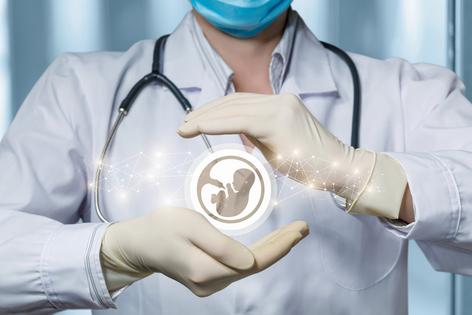Paths to parenthood: Receiving an embryo donation
Published in Health & Fitness
Embryo donation — the process by which a family donates their “extra” embryos to a couple or individual — is a viable path to parenthood. In a previous blog post, I addressed some of the reasons why people who consider their families complete after in vitro fertilization (IVF) might choose to donate embryos.
Who, then, is on the receiving end? Often, this option interests people considering adoption, and individuals or couples who need donated eggs or sperm, or both, to achieve pregnancy. If you find yourself in one of these groups, here are some initial questions and issues you might consider as you make your decision.
Embryo donation or adoption: A few points to compare
Pregnancy. The opportunity to experience pregnancy draws some prospective adoptive parents to seek embryo donation. This may be important to you. It may be a life experience you always looked forward to, or hoped to share with a spouse or partner. Or perhaps you are concerned about having someone else carry your baby. For example, prospective adoptive parents often worry that their future child could be affected before birth by a birth mother’s choices around drugs and alcohol, or exposures to unavoidable stresses.
Time frame and cost. The pandemic fueled already significant declines in the number of babies placed for adoption. If you are seeking to adopt a newborn, you are likely to face a wait of two years or more. By contrast, embryos are available, and an embryo transfer often occurs within six months of making the decision to seek donated embryos.
The cost of embryo donation is considerably less than adoption. If you go through an agency there will be a fee, as well as costs related to moving embryos from one clinic to another and (depending on your medical insurance) costs associated with medications and with the embryo transfer. While costs are substantial and vary across the US, fees are much higher for infant adoption than for embryo donation.
Although the short wait and lower costs are attractive when comparing embryo donation to adoption, it is important to know that embryo donation does not always result in a live birth, while adoption — with a reputable agency — will bring a baby into your home.
Your child’s story. All of us want our children to feel good about their origin stories. Adoptive families have long recognized that some adoptees have enduring feelings of loss because their birth parents chose to make an adoption plan. Some people believe embryo donation mitigates these losses because the child is born into the family they will be raised in. However, others see it differently: they feel that embryo donation brings with it a more complicated origin story. How will a child make sense of the fact that they began as an embryo created by people longing for a baby, but an embryologist chose another embryo for transfer, making them “extra”? Might this lead to a greater sense of displacement, and perhaps to feeling like a bit of a science experiment?
Choosing family backgrounds. If you pursue adoption, you’ll weigh in on the race of your child. You may be able to request birth parents who avoided drugs or alcohol during the pregnancy and/or have family histories free of serious physical or mental health problems. You will not be able to narrow your match to people you like or feel are compatible, people who feel familiar, and whose interests and values align with yours.
If you pursue embryo donation, you and the donor family get to choose each other. Before anyone makes a commitment, you can confirm with the donor family that you have a shared perspective of how much contact you want to have, and what each of you believes is in the best interest of the children involved. Decisions tend to feel more collaborative than in adoption, where it may feel like “birth parents get to make all the decisions.”
...continued







Comments